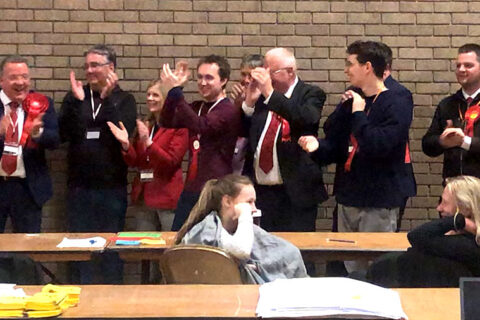
Ahead of the upcoming local elections in South Gloucestershire each party has promised voters how they would make the area better if they win power. Pledges include taking action on the region’s struggling bus services, building new schools and helping with the rising cost of living.
Voters will head to the polls on Thursday 4th May 2023, to cast their ballot for who should run South Gloucestershire Council. The outcome of the election will affect how a wide range of public services in the district are run.
The Conservatives are defending a narrow overall majority of two seats from the Liberal Democrats and Labour. Each of the main political parties have now set out their plans for South Gloucestershire, in a bid to persuade voters to pick them on their ballot papers.
Conservatives said they were “fielding the most diverse range of candidates ever”, with one in five coming from ethnic minority backgrounds. Their pledges include free parking in all council-owned car parks, boosting school attainment levels, keeping the district among the top performing councils in the country for recycling, and investing in the local road network.
The party, which has run the council since 2007, has also promised to fight for several local issues across South Gloucestershire. These include making permanent a noise camera trial tackling anti-social drivers; campaigning for a new secondary school in Lyde Green; and improving pedestrian safety at Damsons Bridge in Winterbourne.
Council leader Toby Savage is stepping down after this election, but said his administration has “delivered real improvements” since the last election in 2019, including building new schools, new park and ride provision and MetroBus extensions, and campaigning against “unsustainable housing targets” proposed by the West of England Combined Authority. He said:
“All of our candidates at this year’s district and parish elections are hard-working, knowledgeable and care deeply about serving the communities in which they live and work. When meeting them on the campaign trail, I have been really impressed by their dedication and I have every faith that they will all make brilliant councillors.”
Liberal Democrats said their priorities were tackling the climate emergency, delivering a joined-up transport system, offering support to people in the cost-of-living crisis, and “bringing back local decision-making”. Their plans include helping residents to better insulate their homes, cutting both carbon emissions and energy bills.
On transport, Liberal Democrats pledged to call for bus franchising, which would bring the region’s bus network back under public control; investigate reopening former train stations like Coalpit Heath; and create a network of off-road cycle, walking and horse riding routes. A cycle route linking the Yate Spur and Alveston Hill would also be completed.
The party is currently the second largest in the council with 17 seats, behind the Tories with 33 seats and ahead of Labour with 11. The council was previously run by the Liberal Democrats, from 1999 to 2007, before the Conservatives took power. They said people were “fed up with out-of-touch Conservative councillors making decisions about their area”.
Councillor Claire Young, leader of the Liberal Democrat group, said:
“South Gloucestershire Council will be run in a completely different way — listening to and working with local people, residents, voluntary groups, town and parish councils and other public authorities. We can create a South Gloucestershire that works with everyone, for everyone.”
Labour pledged to work with landlords to make rental homes warmer, cutting heating bills for tenants; campaign for a Minor Injuries Unit at Cossham Hospital and extra care community beds at Frenchay Hospital; improve access to free childcare; and increase a transport levy paid to the West of England Combined Authority, which is used to subsidise rural bus routes.
The party said it would work with “a future Labour government” to bring back Sure Start children’s centres, if it won the upcoming local election. A Labour-run council would also work with the West of England on training up bus drivers to fix the dire shortage in the region. And they would urge developers to make a third of all new-build homes affordable.
Cllr Pat Rooney, leader of the Labour group, is also not standing for re-election. She is retiring after three decades as a South Gloucestershire councillor, and nine years leading her group. She said the upcoming election was an “opportunity to end the Conservative-controlled council” and vote for a change in the district. She said:
“Our Labour manifesto highlights our concerns and commitments and we believe our communities care deeply about them too. We’ve been ambitious on things like housing, climate change and transport, while making sure we’re responsible with taxpayer’s money. We keep hearing on the doorstep that people want a change. May is your opportunity to vote for one and end this Conservative-controlled council.”
Greens said if they were elected they would address the “challenges of houses with multiple occupants”; reverse bus service cuts and push for a franchising model; and oppose any new giant roundabouts on the Ring Road. The party doesn’t currently have any councillors, but is standing 16 candidates out of a total of 61 seats.
The Green party also promised to give extra support for insulation for community buildings; ensure all new developments protect biodiversity; and embed climate commitments throughout the council’s decision-making. The party would also challenge water companies and the government to “stop dumping raw sewage” in South Gloucestershire rivers.
✍️ Article by Alex Seabrook, Local Democracy Reporting Service (LDRS).





